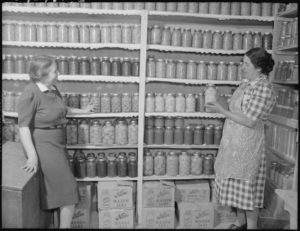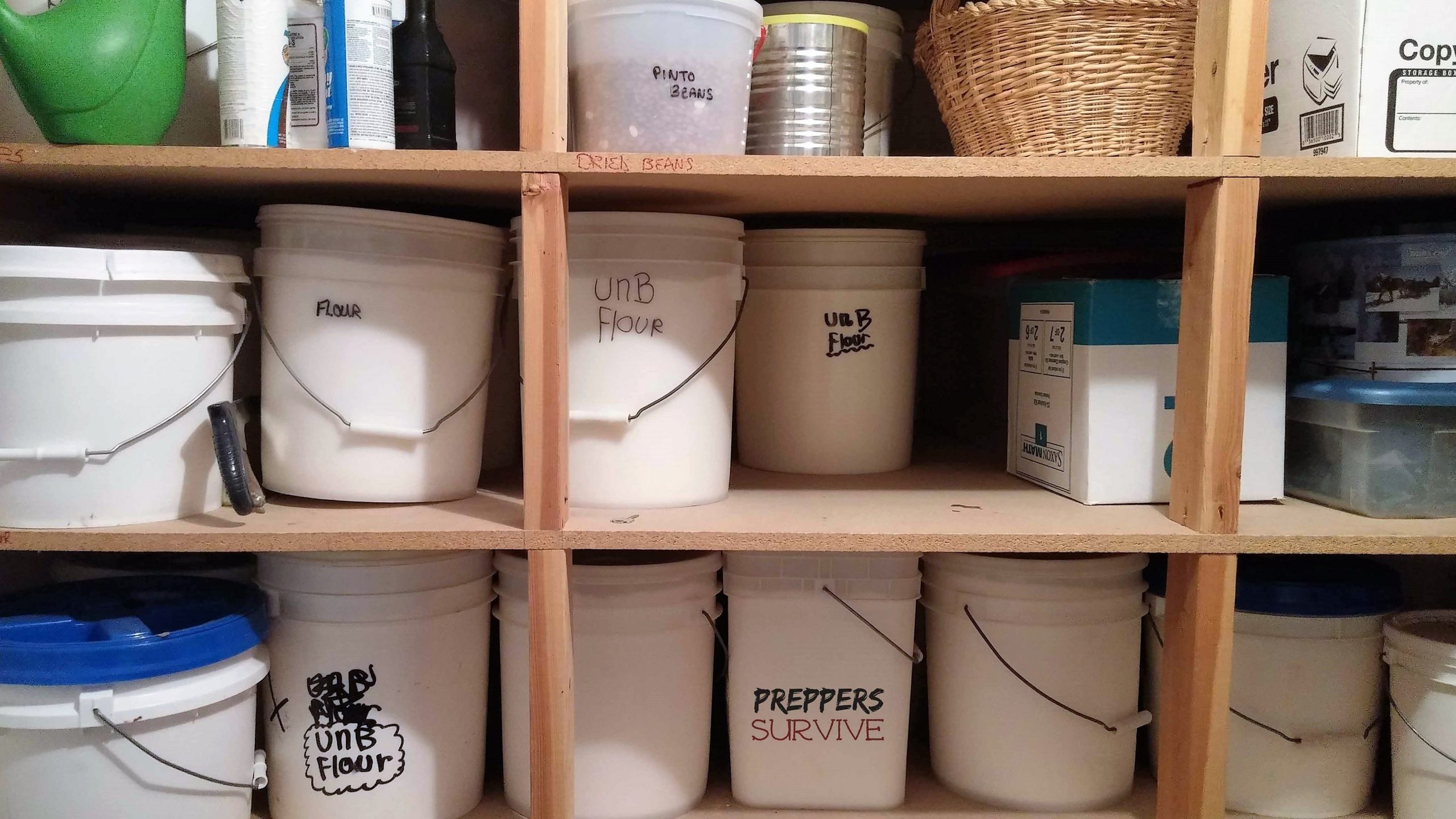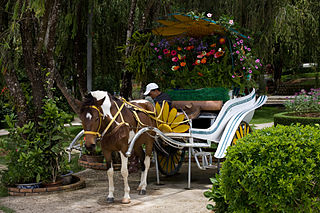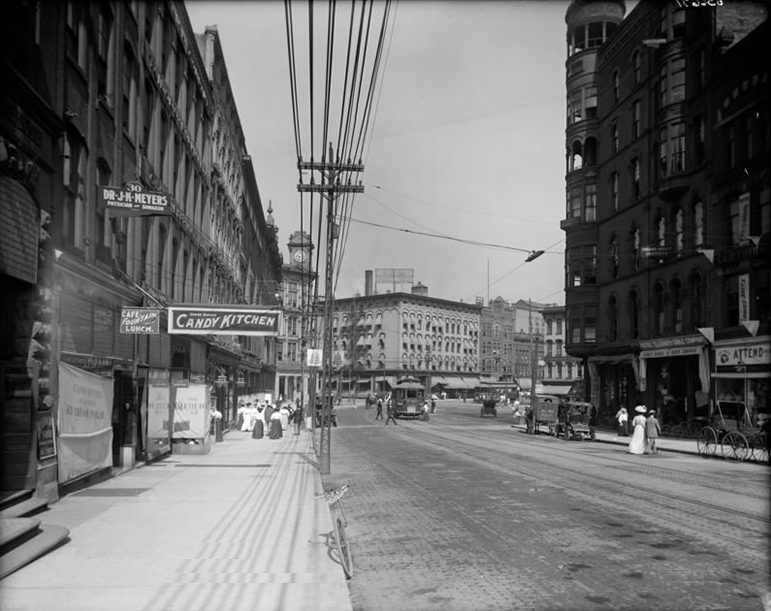You can feel it in the air. Whether it’s a “normie” on Twitter chuckling nervously about a coming civil war or a seasoned national defense analyst calmly discussing why America’s blue water navy will likely lose its next major engagement, change is in the air.
And if you’re a prepper, you’re ready for not-so-good change. You’ve stockpiled a whole year’s worth of rice and beans and wheat and corn in sealed 5-gallon buckets that will last 25 years. You have everything you need.
Let me present a counterpoint: if that’s all you have, you have next to nothing.
Don’t get me wrong: having 750 pounds of dry goods per person per year is far better than having no food at all. No argument there. You’ll live through the troubles and that’s better than the alternative.
But in your 120th consecutive day of eating 25-year-old beans boiled with 25-year-old rice, you’ll seriously contemplate if it’s worth eating today.
I’ve never been a green beret or a defense contractor like some of the professional preppers doling out pantry advice. But I have eaten that menu a time or two. Trust me: you don’t want to eat that menu.
So let me change your focus a bit.
You absolutely should have the food professional preppers tell you to collect, at least in tonnage. They are absolutely correct. And you’ve no excuse: food is cheap in America now, purchased wisely.
You should be purchasing as much food as you can* as frugally as you can. There is literally no downside to having December’s spaghetti on hand today**. Modern mass-processed pasta is not going to taste any different after ten months in your basement compared to ten months in some urban warehouse. Get it today.
But no one wants to eat plain spaghetti any more than they want to eat plain rice and red beans three times a day.
So if you want to get the most of your pantry in SHTF, here’s what you need to do:

Learn to cook.
This is probably the most important lost skill of the past half century. In Heinlein’s masterful SHTF short story “Year of the Jackpot,” the protagonist’s love interest was able to throw together an impressive meal from what she found in that confirmed bachelor’s fridge and cabinets. She got a real man out of the deal.
It wasn’t outrageous for a desireable woman to do that in the 1950s. Could anyone in your family pull that off today? Or does a pantry full of rice and beans today mean your family will be eating boiled rice and beans three times a day for years?
Get recipes and store the fixins you need to prepare them.
If you have 50 pounds of canned chicken in your hoard, you should have recipes for Asian chicken salad, spicy chicken chili, and Buffalo-style chicken pizza in your kitchen. You should also have on hand the scallions, soy sauce, chopped onions, and minced garlic you need to make those and hundreds of other recipes come to life. All those ingredients are available in bulk (dried or packaged). There is no excuse for not storing as many of them as you can reasonably use.
Learn to grow what you need.
If you could live happily on rice and beans, you’d be living on them now. What are you living on, given the choice? Or rather, what healthy foods would you choose before rice and beans? You’re not going to grow frozen chicken pot pies on your land, but you can grow plenty of the aforementioned scallions, onions, and garlic. And potatoes, peppers, tomatoes, spinach, lettuce. You can even grow beans to dry, though I note that few gardeners actually do***.
Live where you can grow what you need.
If you live in a location where of every ten ears of corn you grow, eleven are likely to be stolen by your neighbors, you’re in the wrong place. You need to get rural. I know why you can’t. And that’s fine****. It doesn’t change the facts. Most prepping problems are solved by living where everyone within walking distance has a garden as big as yours.
You can follow a lot of formulas when it comes to your prepper pantry. But the bottom line is, “Could I eat what I’ve stored?” This the the difference between life and death.
Now ask it again this way: could I eat ONLY what I’ve stored? If you think a couple grand invested in a few dozen 5-gallon buckets is enough “food” for your family, then great. You’ll live through SHTF. That’s a win.
But if you want to come in from a hard day’s work in the field looking forward to a good meal, you’re going to have to figure out what a good meal entails and provide what a good meal demands. And that means stepping out far beyond beans and rice and corn and wheat.
Europeans in the previous centuries did not send ships to India and China because they were short on beans, but because they were short on what made beans worth eating. You can learn effortlessly today the lessons they learned then the hard way.
Stock food, yes.
But more importantly, master the skills and grow the crops that make stocking tons of bland, emergency food redundant.
* There is a benevolent side to “hoarding” as well. I have charge of 5 kids in my household, all of whom are or have been wards of the state and receive certain state benefits as a result. Do you really want me ahead of you in the ration line?
** If you want to make a real-life video game of it, pick an app like Ibotta that gives you refunds for buying given foods at a given time. A few months back I was able to buy American Beauty spaghetti for 18 cents a box ($1 “refund” on a $1.18 product), three boxes a day for a month. I have December’s spaghetti on hand today.
*** Another clue for the clue-minded. I don’t store many beans, maybe a hundred pounds, because I don’t like beans. I would rather eat something else, so I grow something else.
**** Those who believe they can and those who believe they cannot are both usually correct.

Prepper Pantry Management
6 Comments
Leave a Reply
Latest from Family

“Joseph” by Charles Kingsley
Editor’s note: The following is extracted from The Works of Charles Kingsley, Vol. 25 (published 1885). (Preached on the Sunday before the Wedding of the Prince of Wales. March 8th, third Sunday

Fly, Fly Dear Friend
It is with heavy heart that we report that our good friend and MOTW Poet Laureate, Ian McLeod, has passed away. He was too young, and he will be dearly missed. Offer

You Can’t Have Both Feminism and Chivalry
If women are not weaker than men there is zero reason to “protect” or “let them go first” or “open the door for them.” Now because I’m dead set against feminism, I

A Place for Everyone
If you ever played any team sports, you’ll be familiar with motivational quotes. Successories kicked things off in 1985 as a catalog company. There are entire campaigns and web sites devoted to

Church Home
That older single lady with the grey hair and quirky dress. The men stuffing themselves into old suits a size and a half too small or the old men whose suits now




5
5
Spices. Lots and lot of spices. They can be bought bulk much more inexpensively than from grocery stores in their little packages from places like bulkfoods.com, repackaged and stored.
Visiting a lumber supplier in Brazil, we walked past the plant lunchroom. He mentioned they serve breakfast and lunch to their workers every day. The same thing every day, black beans & rice, and black bread. The tables were well stocked with different spicey sauces. It might be the same fare every day, but it doesn’t have to taste like it.
I have no connection to bulkfoods.com, just a customer. They’re just one of many places you can buy things like chili powder, cumin, chicken base, beef base, etc. by the pound.
This. I try to grow as many as I can, but some just won’t work here. So dried and stored it is.
4.5
To add to your food security, consider planting plants that are perennials instead of annuals. For example: asparagus, artichokes, garlic, Babington leeks, sorrel, apples & pears, berries etc. This way you don’t have to depend exclusively on starting plants from seed.
Check out backyard Larder dot com dot uk
Check out the website